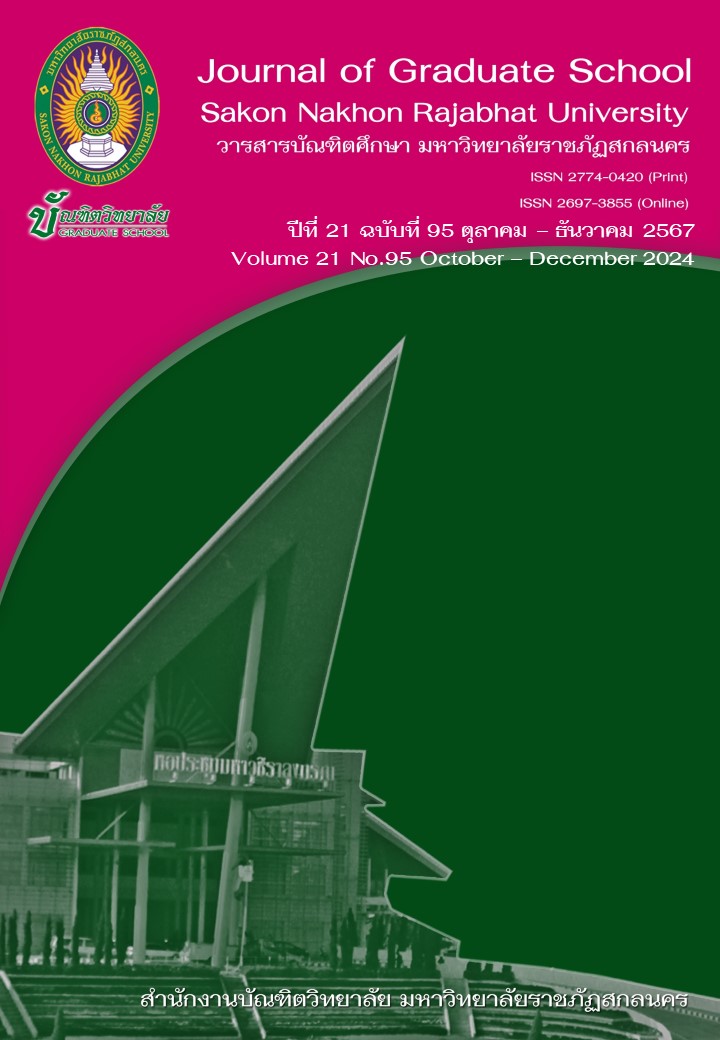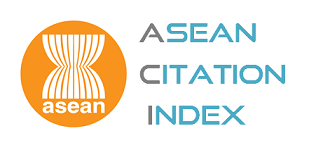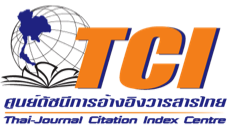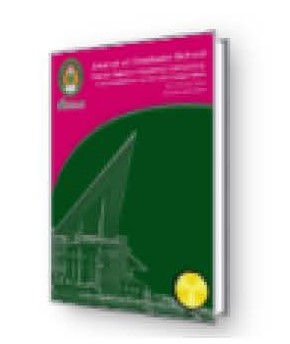DEVELOPMENT GUIDELINES BASED ON UPRIGHT SCHOOL MANAGEMENT STANDARDS FOR SCHOOLS UNDER MUKDAHAN PRIMARY EDUCATIONAL SERVICE AREA OFFICE
Keywords:
Current Conditions, Desirable Conditions, Upright Schools, Upright School Management StandardsAbstract
The research objectives aimed to 1) examine the current and desirable conditions of development guidelines based on upright school management standards, 2) assess the need for establishing these development guidelines, 3) enhance the development guidelines based on upright school management standards, and 4) evaluate the appropriateness and feasibility of the development guidelines based on upright school management standards in schools under Primary Educational Service Area Office Mukdahan. The sample consisted of 47 school administrators and 258 teachers, totaling 305 participants. The tools included a set of questionnaires, interview forms, and assessment forms for evaluating appropriateness and feasibility. The sample size was determined through simple random sampling using specified percentage criteria. Statistics used in the data analysis were percentage, mean, standard deviation, and Priority Needs Index. (PNIModified).
The results revealed that: 1) The current conditions of upright school management standards were overall at a high level, while the desirable conditions were overall at the highest level; 2) The needs for upright school management standards were rated higher than the overall values in three areas, including personnel administration, general administration, and outcomes and success images; 3) The development guidelines are proposed covering (1) Academic Affairs Administration. Schools should define objectives, enhance and revise school curricula, establish measurement and evaluation processes, and cultivate the five characteristics of students in upright schools, (2) Budget Administration. Schools should manage income and expenses while considering value and maximizing benefits following the regulations, (3) Personnel Management. Schools should recruit, select, and hire individuals appropriately while recognizing, praising, and publicizing the contributions of school personnel, (4) General Administration. Schools should provide facilities, including buildings and opportunities for personnel, parents, and the community to participate in supervising, monitoring, and inspecting the school operations, (5) Outcomes and Success Images. Schools should achieve outcomes from the development of administrators, teachers, students, and schools themselves, along with evaluating morality and transparency in school operations based on the characteristics of upright schools, and 4) the evaluation results of the development guidelines based on upright school management standards were overall appropriate at the highest level and demonstrating a high level of possibility.
References
จิณฑ์จุฑา ชูโตศรี. (2560). การพัฒนาแนวปฏิบัติในการเสริมสร้างคุณธรรม จริยธรรมและธรรมาภิบาลสำหรับโรงเรียนสุจริต. วิทยานิพนธ์ ศษ.ด. พิษณุโลก: มหาวิทยาลัยนเรศวร
บุญชม ศรีสะอาด. (2560). การวิจัยเบื้องต้น ฉบับปรับปรุงใหม่. (พิมพ์ครั้งที่ 10). กรุงเทพฯ: สุวีริยาสาส์น.
ปรียาภรณ์ ตังคุณานันต์. (2562). การบริหารงานวิชาการในสถานศึกษาเพื่อการพัฒนาที่ยั่งยืน. กรุงเทพฯ: มีน เซอร์วิส ซัพพลาย.
พิมพ์ชนก หชัยกุล. (2565). การพัฒนาแนวทางการบริหารตามมาตรฐานโรงเรียนสุจริต สังกัดสำนักงานเขตพื้นที่การศึกษามัธยมศึกษาร้อยเอ็ด. วิทยานิพนธ์ กศ.ม. มหาสารคาม: มหาวิทยาลัยมหาสารคาม.
พรทิพย์ ไชยมงคล. (2560). การศึกษาสภาพการดำเนินงานในโครงการโรงเรียนสุจริต กลุ่มโรงเรียนเชียงคำ 1 สำนักงานเขตพื้นที่การศึกษาประถมศึกษาพะเยา เขต 2. วิทยานิพนธ์ กศ.ม. พะเยา: มหาวิทยาลัยพะเยา.
รัชตาพร เสนามาตย์. (2561). รูปแบบคุณลักษณะผู้นำของผู้บริหารโรงเรียนสุจริต สังกัดคณะกรรมการการศึกษาขั้นพื้นฐาน. วิทยานิพนธ์ ปร.ด. บุรีรัมย์: มหาวิทยาลัยราชภัฏบุรีรัมย์.
วชิรวิทย์ นิติพันธ์ และสุวิทย์ ภานุจารี. (2563). รูปแบบการบริหารโรงเรียนสุจริตของผู้บริหารสถานศึกษาระดับประถมศึกษา สังกัดสำนักงานคณะกรรมการการศึกษาขั้นพื้นฐาน. ดุษฎีนิพนธ์ ศษ.ด. นครปฐม: มหาวิทยาลัยมหามกุฏราชวิทยาลัย.
สุพัตรา กุสิรัมย์. (2561). ปัจจัยที่ส่งผลต่อประสิทธิผลในการบริหารจัดการโครงการโรงเรียนสุจริต ของโรงเรียนต้นแบบและโรงเรียนเครือข่ายในจังหวัดบุรีรัมย์. วิทยานิพนธ์ ค.ม. บุรีรัมย์: มหาวิทยาลัยราชภัฏบุรีรัมย์.
สุวิมล ว่องวาณิช. (2558). การวิจัยประเมินความต้องการจำเป็น. กรุงเทพฯ: สำนักพิมพ์แห่งจุฬาลงกรณ์มหาวิทยาลัย.
สำนักพัฒนานวัตกรรมการจัดการศึกษา. (2558). แนวทางการดำเนินงานโรงเรียนสุจริต. กรุงเทพฯ: สำนักงานคณะกรรมการการศึกษาขั้นพื้นฐาน.
______. (2561). คู่มือหลักสูตรต้านทุจริตศึกษา. กรุงเทพฯ: กระทรวงศึกษาธิการ
สำนักงานคณะกรรมการการศึกษาขั้นพื้นฐาน. (2559). แนวทางการดำเนินงานโรงเรียนสุจริต. กรุงเทพฯ: กระทรวงศึกษาธิการ.
Weston, A. (2017). Positive Behavior Interventions and Supports’ Relationship to The Eleven Principles of Effective Character Education. (Doctoral dissertation). Louisiana: Southeastern Louisiana University.
Komalasari, K, & Saripudin, D. (2015). Integration of Anti–Corruption Education in School’s Activities. American Journal of Applied Sciences, 12(6), 445–451.
Sulkowski, N. B. & Deakin, M. K. (2009). Does Understanding Culture Help Enhance Students Learning Experience. International Journal of Contemporary Hospitality Management, 21(02), 154–166.
Downloads
Published
How to Cite
Issue
Section
License
Copyright (c) 2024 Journal of Graduate School Sakon Nakhon Rajabhat University

This work is licensed under a Creative Commons Attribution-NonCommercial-NoDerivatives 4.0 International License.
บทความทุกบทความที่ตีพิมพ์ในวารสารบัณฑิตศึกษา มหาวิทยาลัยราชภัฏสกลนคร ถือว่าเป็นลิขสิทธิ์ของบัณฑิตวิทยาลัย มหาวิทยาลัยราชภัฏสกลนคร










